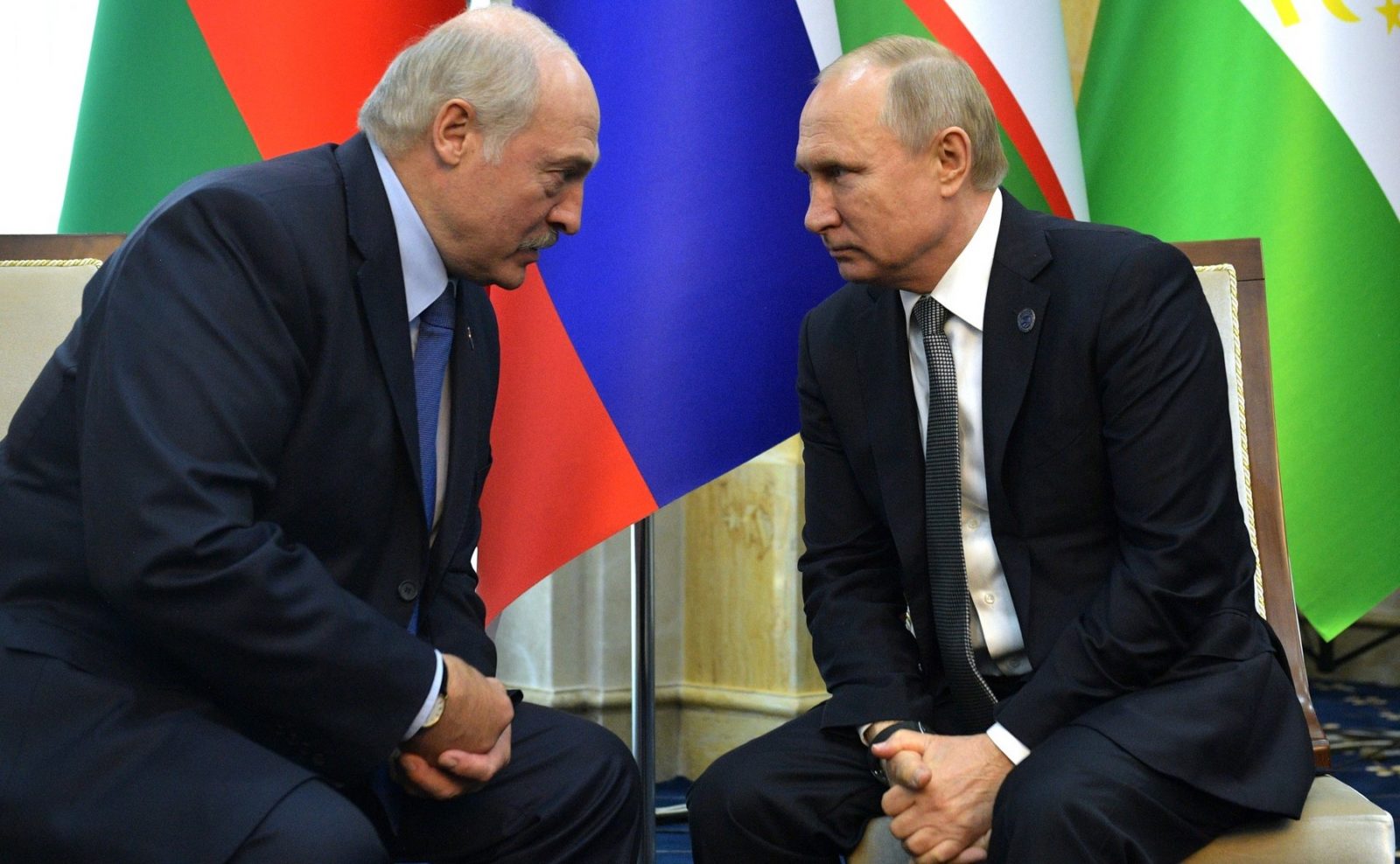As the legendary British musician Peter Gabriel once said, deadlines are things we miss on our way to the ultimate goal. Dmitry Medvedev and Sergei Rumas just completed their negotiations by postponing the period for making decisions once again. The positions of the parties should be “finalised” at the level of both governments over the summer and submitted for consideration at a summit in November this year.
The officials who met, as well as journalists and experts, discussed at length whether the two parties managed to bring their positions closer together and to what extent. For example, the head of the Ministry of Economic Development of Russia, Maxim Oreshkin, spoke about 70% and then about 90% of issues that have been agreed. However, the Belarusian Prime Minister Sergei Rumas characterised the degree of coordination more precisely. According to him, the “two or three points” where discrepancies still exist are the “most difficult issues.” In other words, neither the issue of gas prices, nor the compensation for Belarus’ losses incurred due to the tax manoeuvre in the oil industry in Russia, nor the controversial issues of access for Belarusian food products to the Russian market have been resolved.
Expected lack of result
This result is quite logical, expected and even seems to be the only possible outcome. This is because the negotiating parties have incompatible positions. The Belarusian authorities are now striving, if not to preserve (return) the rent that was earlier available to them, then at least to achieve more solid agreements within the Eurasian Economic Union. These include access to the Russian market; the removal of exemptions and restrictions; as well as a reasonable resolution of the situation around the Russian tax manoeuvre in oil production. Neither is Minsk ready for any forms of deeper political or military policy integration. Such an idea sits badly with preserving Belarusian sovereignty or the existing political regime in the country.
Russia, in turn, continues its efforts to ensure military, strategic and political control over the territory of Belarus. It has been doing so unilaterally. Moscow does not trust Lukashenko. Rather, it seeks chances to influence the situation in Belarus without the authorities in Minsk. Moreover, the deployment of Russia’s troops on the territory of Belarus is critical for the Russian side; it would provide westward force projection. And it could solve the problem of the Kaliningrad enclave. At the same time, the Kremlin sees no point in making concessions to the Belarusian leadership, which it sees as in “Zugzwang,” with Minsk having no way out.
A strange kind of preparation
Neither side expected any June deal, which is obvious when looking at step taken on the eve of the Prime Ministers’ meeting.
On 17 June, former Russian Ambassador to Belarus Mikhail Babich was appointed Russia’s Deputy Minister of Economic Development in charge of integration processes in the post-Soviet space. Babich was, and still is, a strong irritant for the Belarusian authorities. He reviewed Belarusian-Russian cooperation, directly drew the attention of the Belarusian authorities to the forms and volumes of “economic support” provided by Moscow to Minsk, and initiated direct contacts with civil society and political opposition in Belarus.
According to social network rumours, the Belarusian authorities have been seeking to recall Babich from Minsk since late 2018. Yet, his departure was somewhat unexpected and hasty. Immediately after the meeting between Lukashenko and Putin, Babich left Minsk on the margins of the “One Belt, One Road” forum. The current Russian Ambassador, Senator Dmitry Mezentsev, was appointed to replace him in haste. His appointment bypassed a various official domestic procedures. This happened after the detention of Andrei Vtyurin, the Deputy State Secretary of the Security Council of Belarus. Vtyurin was detained in connection with suspected bribery. Thus, Vtyurin perhaps gave testimony compromising Babich. In turn, this could have allowed Lukashenko to achieve an urgent evacuation of the Russian ambassador from Minsk.
Alongside Vturin’s detention and Babich’s departure, the Minister of Internal Affairs of Belarus Igor Shunevich, known for his openly pro-Russian position, lost his post. Vtyurin was in charge of the Interior Ministry in the Security Council of Belarus. On the whole, this story gave rise to a rumoured “conspiracy of law enforcement officers” in Belarus. Allegedly it was directed against Lukashenko.
Babich’s return to the post of “guardian” of Belarus in the Ministry of Economic Development is a blatant slap on the face for Lukashenko. (M. Oreshkin, the head of the Ministry, is co-chairman of the Belarusian-Russian working group on “deeper integration”.) Equally key is how the Babich appointment symbolises the approval of his hard-line policy. It indicates the Kremlin’s intention to adhere to this approach.
In this situation, Lukashenko did not leave things as they stood. To respond to Putin, he used “Pussy Riot” members Olga Kurachyova and Veronika Nikulshina. They received a passport stamp banning them from entering the Republic of Belarus while they went via Mink airport on 17 June. The group, and the press secretary of the President of the Republic of Belarus, Natalia Eismont did say tension subsided later. The Belarusian authorities, represented by the head of the Presidential Administration, Natalia Kochanova, contacted the activists on 18 or 19 June. She apologised and reported that Minsk had no claims against them and that they were, in fact, able to enter the territory of Belarus.
This unusual gesture by the authorities, as well as its intentional media coverage, was apparently aimed at Moscow. It represents an indirect jab at Putin.
In short, none of the parties had any illusions about the possibility of achieving the desired results of the negotiations. Instead of diplomatic statements before the meeting of Prime Ministers, both parties needled each other with personal attacks.
The logic of negotiations in an escalating situation
Quite logically, the lack of prospect for reaching mutually acceptable agreements makes it questionable if such negotiations are needed. Each of the parties seems to provide its own answer to this question.
For the Belarusian leaders, continued negotiations are needed, primarily in practical terms. They are the only way for Minsk to achieve compromise from Moscow. Although this method is not effective, the Belarusian authorities do not have anything better at their disposal. The symbolic aspect of the negotiations also matters. The picture of externally friendly communication between Lukashenko and Russian leaders is important. It creates an illusion of well-developing bilateral relations, an impression of Moscow listening to Lukashenko as an equal partner. All this is to “calm down” the traditional electorate of the Belarusian president; many of whom hold pro-Russian views.
The Russian side is playing a more difficult game in this situation. By reducing the rent available to the Belarusian political regime, it undermines its economic foundation as well as its legitimacy. And it contributes to the growth of protest moods in the country. At the same time, at the highest level (i.e. in Putin’s actions) the Russian side is drifting from confrontational rhetoric. He is strictly adhering to the “constructive rhetoric” and letting Belarusian leaders be the main initiator of public outcries. This part of the Russian strategy is to dilute Lukashenko’s traditional electoral base.
On the other hand, Moscow continues to saturate the Belarusian information space with messages to create an alarming background. Belarusians who care about the preservation of their country’s sovereignty tune in. As do those who thus represent the core of the potential new electorate of the Belarusian authorities. Leveraging how the negotiation process happens behind closed doors, the Russian authorities are fuelling misinformation about the supposedly high degree of readiness of the agreements on “deeper integration”. Their messages imply an alleged preparation of the text of the “Constitutional Act of the Union State” and other “events” that lead to the loss of sovereignty in Belarus.
In this context, the Belarusian authorities are gradually losing the support of the traditional electorate. The deteriorating socio-economic situation does not help, Equally, it is drawing in the “new” electorate too slowly because of its distrust in the country’s leadership’s desire and ability to defend its sovereignty. At the same time, Moscow’s “friendly” rhetoric at the highest level makes it impossible or difficult for the Belarusian authorities to conduct both external and internal communication about the threat that Russian policies pose.
The defining stage of the Belarusian-Russian negotiations, at the level of the presidents of the two countries, has been scheduled for November. That is when Belarus will hold a campaign to elect members of its two chambers of parliament. If, during the approaching political campaign, the Russian side throws in plausible misinformation that the Belarussian authorities allegedly “surrendered sovereignty” in the course of negotiations, this could trigger a full-scale crisis in Belarus, As was the case in Ukraine after the Eastern Partnership summit in November 2013. In this case, the Belarusian authorities will have to solve hard and perhaps bloody dilemmas to preserve the country’s sovereignty and integrity.










